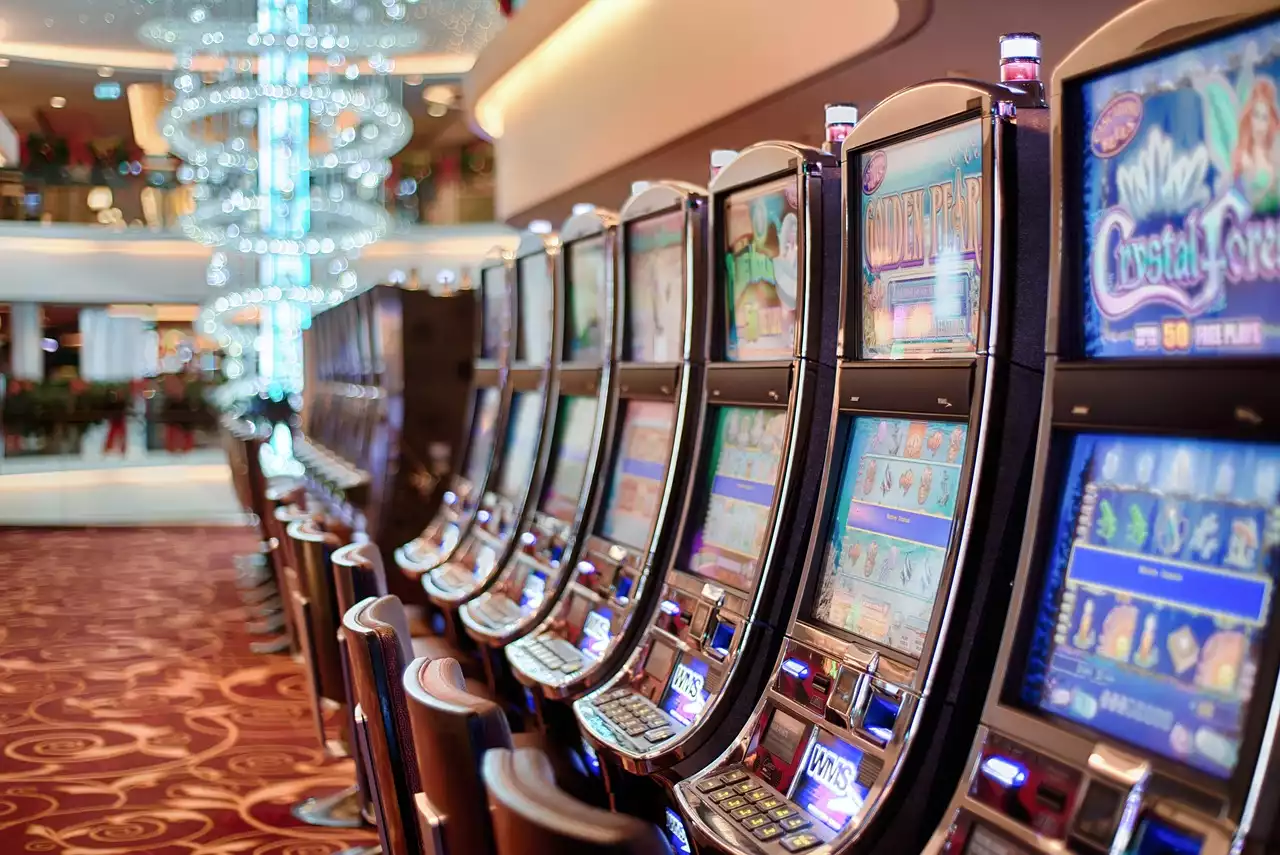Introduction
With Brazil being the largest country in South America and having a diverse and vibrant culture, it's no surprise that discussions around legalizing land-based casinos have been met with both excitement and skepticism. The casino conundrum in Brazil has sparked debates among politicians, economists, and citizens alike, as they weigh the potential benefits and drawbacks of such a decision.
Proponents of legalizing land-based casinos argue that it could bring in significant revenue for the country, boost tourism, and create job opportunities. They point to successful casino industries in other countries as evidence of the positive impact it could have on the economy. On the other hand, opponents raise concerns about the potential for increased crime and addiction, as well as the potential negative social consequences that come with gambling.
In this article, we will delve deep into the pros and cons of legalizing land-based casinos in Brazil, addressing both the anticipated benefits and the potential risks. By analyzing different perspectives and considering real-life examples from other countries, we aim to provide a comprehensive understanding of the casino conundrum and its implications for Brazil's future.
Keywords: Brazil, land-based casinos, legalizing, pros and cons
Pros of legalizing land-based casinos in Brazil
Legalizing land-based casinos in Brazil has the potential to bring several benefits to the country. One of the most significant advantages is the potential for increased revenue. Casinos have proven to be lucrative ventures in various countries, with tax revenues contributing to public funds. In addition to tax revenue, legalizing casinos would also create job opportunities, particularly in the hospitality and entertainment sectors.
Another advantage of legalizing land-based casinos is the potential boost to tourism. Brazil already attracts millions of tourists each year due to its natural beauty and cultural heritage. The addition of world-class casinos could further enhance Brazil's appeal as a tourist destination, attracting high-spending visitors from around the globe. This influx of tourists would not only benefit the casino industry but also have a positive ripple effect on other sectors such as hotels, restaurants, and transportation.
Legalizing land-based casinos could also lead to increased investment in infrastructure. Casino operators often invest heavily in the local economy, building luxurious resorts, hotels, and entertainment venues. This investment can have long-lasting effects, improving the overall quality of infrastructure in the surrounding areas and creating a positive environment for economic growth.
Cons of legalizing land-based casinos in Brazil
Despite the potential benefits, there are also valid concerns regarding the legalization of land-based casinos in Brazil. One of the primary concerns is the potential for increased crime. Casinos are often associated with organized crime, money laundering, and illegal activities. Critics argue that legalizing casinos could provide a breeding ground for criminal activities, putting both locals and tourists at risk.
Another major concern is the potential for increased addiction and social problems. Problem gambling can have devastating consequences on individuals and their families. Critics argue that legalizing casinos would make gambling more accessible, leading to an increase in addiction rates. Additionally, the social costs associated with gambling addiction, such as increased domestic violence and financial hardships, should not be overlooked.
Furthermore, legalizing land-based casinos may exacerbate existing socioeconomic disparities. While the casino industry has the potential to create job opportunities, these jobs may primarily benefit the already privileged individuals. Critics argue that the construction and operation of casinos may lead to the displacement of local communities and the exploitation of vulnerable groups.
Economic impact of legalizing land-based casinos
The economic impact of legalizing land-based casinos in Brazil cannot be ignored. Proponents argue that the casino industry has the potential to generate significant revenue for the country. Tax revenues from casinos can be used to fund public services, infrastructure development, and social programs. Additionally, the casino industry has a multiplier effect on the economy, creating job opportunities and stimulating other sectors such as tourism and hospitality.
On the other hand, opponents raise concerns that the economic benefits may not be as substantial as proponents claim. They argue that the economic impact of the casino industry is often overstated, with the majority of the profits going to casino operators rather than benefiting the local economy. Additionally, the revenue generated from casinos may be offset by the social costs associated with gambling addiction and increased crime rates.
Social impact of legalizing land-based casinos
Legalizing land-based casinos in Brazil would undoubtedly have a significant social impact. Proponents argue that the casino industry can contribute to the development of local communities, as casino operators often invest in infrastructure and social programs. They also argue that the casino industry can provide entertainment options and contribute to the cultural vibrancy of a city or region.
However, opponents raise concerns about the potential negative social consequences of legalizing casinos. Studies have shown that areas with a high concentration of casinos often experience an increase in problem gambling rates, which can lead to financial hardships, mental health issues, and strained relationships. Additionally, the casino industry may contribute to the normalizing of gambling behavior, particularly among young people, which can have long-term social implications.
Comparison with other countries that have legalized land-based casinos
To gain a better understanding of the potential outcomes of legalizing land-based casinos in Brazil, it is essential to examine the experiences of other countries that have already taken this step. Several countries, such as the United States, Macau, and Singapore, have thriving casino industries, which have had a significant impact on their economies.
For example, Macau, often referred to as the "Las Vegas of Asia," has experienced tremendous economic growth since legalizing casinos in the early 2000s. The casino industry in Macau generates billions of dollars in revenue each year, contributing to the region's overall prosperity. However, it is worth noting that Macau has also faced challenges related to increased crime rates and social issues associated with problem gambling.
Similarly, the United States has a long history of legalizing and regulating casinos. Different states have taken different approaches, with some allowing casinos only in specific locations and others permitting them statewide. The economic impact of casinos in the United States varies from state to state, with some experiencing significant benefits, while others have not seen the expected economic growth.
Current state of gambling in Brazil
Before analyzing the potential impact of legalizing land-based casinos, it is important to understand the current state of gambling in Brazil. Currently, most forms of gambling are illegal in Brazil, with the exception of horse racing and lotteries. However, despite the legal restrictions, gambling is prevalent, with a significant portion of the population participating in illegal gambling activities.
The demand for gambling in Brazil is evident, as evidenced by the popularity of online gambling platforms and the existence of a thriving underground gambling market. Critics argue that the current legal restrictions on gambling do little to protect consumers and regulate the industry, leading to potential risks such as fraud and money laundering.
Arguments for and against legalizing land-based casinos
The arguments for and against legalizing land-based casinos in Brazil have been the subject of intense debate. Proponents argue that legalizing casinos would generate much-needed revenue for the country, create job opportunities, and boost tourism. They also argue that a regulated casino industry would provide a safer gambling environment, protecting consumers from fraud and ensuring responsible gambling practices.
On the other hand, opponents raise concerns about the potential negative social consequences of legalizing casinos. They argue that the social costs associated with gambling addiction and increased crime rates outweigh the economic benefits. Additionally, opponents argue that the revenue generated from the casino industry may not be distributed equitably, further exacerbating socioeconomic disparities.
Potential regulations and safeguards for legalizing land-based casinos in Brazil
If Brazil decides to move forward with legalizing land-based casinos, implementing proper regulations and safeguards is crucial to mitigate potential risks. Regulation should focus on ensuring fair and transparent operations, protecting consumers, and preventing criminal activities.
Some potential regulations and safeguards that could be considered include strict licensing requirements for operators, robust monitoring and auditing systems, responsible gambling initiatives, and measures to prevent money laundering and fraud. Additionally, resources should be allocated to address potential social issues, such as problem gambling prevention and treatment programs.
Conclusion and recommendations for the future of the casino industry in Brazil
In conclusion, the casino conundrum in Brazil has sparked heated debates, with proponents highlighting the potential economic benefits and opponents raising concerns about the social costs. While legalizing land-based casinos could bring in significant revenue, boost tourism, and create job opportunities, it is essential to carefully consider the potential risks, such as increased crime and addiction.
If Brazil decides to move forward with legalizing land-based casinos, it is crucial to implement comprehensive regulations and safeguards to protect consumers and mitigate potential negative social consequences. Lessons can be learned from other countries that have legalized casinos, both in terms of successful economic models and potential pitfalls to avoid.
Ultimately, the decision to legalize land-based casinos in Brazil should be made with a thorough understanding of the potential benefits and risks, taking into account the unique cultural, social, and economic context of the country. By carefully considering all perspectives and implementing appropriate measures, Brazil can navigate the casino conundrum and ensure a responsible and sustainable future for the casino industry.














